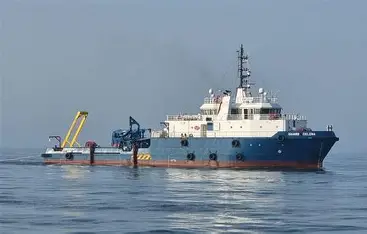London, October 6, 2025 — The British government has delayed its long-anticipated decision on the development consent order for the Outer Dowsing Offshore Wind Farm, sparking concern among investors, environmental groups, and energy industry leaders who view the project as vital to the United Kingdom’s clean energy transition.
The delay, confirmed by the Department for Energy Security and Net Zero, follows months of consultations over environmental impact assessments, grid capacity, and community objections from coastal residents in Lincolnshire.
The Outer Dowsing project, a joint venture between TotalEnergies and Corio Generation, plans to install about 100 offshore wind turbines off the Lincolnshire coast. Once completed, the project could generate enough renewable electricity to power more than 1.6 million homes. Originally slated for approval this autumn, the project now faces an indefinite hold as ministers undertake what they call a “comprehensive review of cumulative environmental effects” across the southern North Sea.
A government spokesperson said the review aims to ensure alignment with national energy policy and the UK’s legally binding net-zero 2050 commitments. “The Secretary of State will take additional time to assess all representations received and the potential impacts on marine ecosystems and coastal heritage,” the Department said in a statement. “A decision will be issued as soon as practicable.”
The postponement has frustrated renewable energy advocates who warn that repeated delays are undermining the UK’s global leadership in offshore wind power. The trade association RenewableUK said the uncertainty is causing investors to reconsider commitments to major projects. “Every delay increases costs and risks the UK’s reputation as a world leader in offshore wind,” said Melanie Onn, deputy chief executive of RenewableUK. “Outer Dowsing could bring huge economic benefits and help stabilize energy prices, but indecision makes it harder to move forward.”
Local leaders and residents remain divided. Many in Lincolnshire support the job creation and investment tied to the project, while others have voiced concerns about the visual impact on the coastline, disruption to fishing grounds, and threats to marine wildlife. The Royal Society for the Protection of Birds (RSPB) urged ministers to ensure the protection of sensitive ecosystems and seabird populations. “The southern North Sea is already heavily industrialized,” said Kate Jennings, RSPB policy officer. “We must ensure renewable growth does not come at the expense of biodiversity.”
Industry analysts warn that the delay could push construction back by at least a year. Offshore installation was expected to begin in 2027, with operations starting by 2030. Any further postponement could jeopardize supply chain contracts, training programs, and local employment opportunities.
The Outer Dowsing project is a cornerstone of the UK’s broader plan to reach 50 gigawatts of offshore wind capacity by 2030, a key target reaffirmed by Prime Minister Keir Starmer’s Labour government. Yet the lengthy permitting process has become a major barrier. According to the National Infrastructure Commission, the average approval time for offshore projects now exceeds three years, a steep rise from under two a decade ago.
Developers are also grappling with rising costs linked to inflation, high interest rates, and supply chain bottlenecks. “The UK remains a leading market for offshore wind, but these delays add uncertainty,” said Alex Armstrong, senior analyst at Aurora Energy Research. “If timelines do not improve, we risk losing investment to faster-moving competitors like the United States, Denmark, and the Netherlands.”
Despite the setback, both TotalEnergies and Corio Generation reaffirmed their commitment to the project. In a joint statement, they said: “We acknowledge the complexity of the consenting process and will continue engaging constructively with all stakeholders. Outer Dowsing represents a major step toward a cleaner, more resilient UK energy system.”
The project has already secured grid connection agreements with National Grid ESO and completed seabed surveys under a Crown Estate lease. Local councils, including Boston Borough and East Lindsey District, have expressed support, highlighting the potential for hundreds of construction jobs, new engineering apprenticeships, and growth opportunities in coastal towns.
Still, concerns persist among the fishing community. Fishermen in Skegness and Mablethorpe say expanding offshore projects have already eroded their traditional fishing areas. “We support green energy, but not if it destroys our way of life,” said Alan Brookes, a veteran trawl fisherman. “We’ve given up too much sea already.”
Analysts say the government’s eventual decision will signal how serious the Labour administration is about speeding up the renewable permitting process. A swift approval could reinforce investor confidence and accelerate clean energy deployment, while continued delays may threaten the UK’s 2030 climate goals.
As global competition for renewable investment intensifies, Britain’s handling of Outer Dowsing has become a test of its credibility as a climate leader. For now, the project stands as a symbol of both the promise and paralysis that define the UK’s clean energy transition in 2025.



